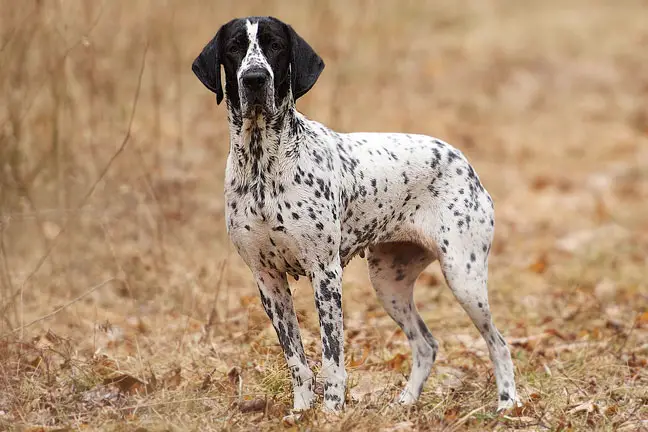Can Dogs Eat Cornstarch? Is It Safe or Bad for Dogs?
When it comes to our furry friends, we always want to provide them with the best care and nutrition. But sometimes, our curiosity leads us to question certain household items and their compatibility with our pets.
One such question that often arises is, can dogs eat cornstarch? Is it something that’s beneficial or possibly harmful? In this comprehensive guide, we will explore the effects of cornstarch on dogs, its uses, and potential risks.
Whether you’ve found cornstarch in your dog’s food or are considering it for various applications like skin care, we have got the answers you need.
Key Takeaways:
- Cornstarch is Generally Safe: Cornstarch itself isn’t toxic to dogs, but how and why it’s used matters.
- Not for Regular Feeding: It shouldn’t be a regular part of your dog’s diet.
- Potential Uses: Cornstarch can be used for specific applications like wound care and relieving itchy skin.
- Read Labels: If cornstarch is an ingredient in dog food or baby food, understand what percentage and purpose it serves.
- When in Doubt, Consult a Vet: For specific health concerns or applications, your veterinarian can provide the best advice.
Short Answer: Is Cornstarch Safe for Dogs? Generally speaking, cornstarch is not harmful to dogs. It can even be used in some specific applications such as on wounds or itchy skin. However, it’s not something that should be included regularly in your dog’s diet, and care should be taken when it’s found as an ingredient in processed foods. Always consult with a veterinarian for personalized guidance.
Cornstarch: What is it?
Cornstarch is a carbohydrate extracted from the endosperm of corn. It’s a white powdery substance that’s commonly used as a thickening agent in cooking. Here’s a closer look at what cornstarch is and its characteristics:
Composition
Cornstarch consists mainly of carbohydrates, with minimal amounts of protein and fat. It doesn’t contain any vitamins or minerals in significant amounts.
Uses in Cooking
In human foods, cornstarch is often used to thicken soups, sauces, and gravies. It’s prized for its ability to form a smooth consistency without a strong flavor.
Other Applications
Beyond cooking, cornstarch has applications in various industries, including textiles and pharmaceuticals. It’s also found in some cosmetic products.
Cornstarch in Dog Products
Some dog foods and treats may contain cornstarch as a binding agent or filler. It’s also used in certain pet products, such as biodegradable waste bags.
Understanding cornstarch and its various applications helps in recognizing how and why it might be found in products that could affect your dog’s health. While generally safe, it’s crucial to consider its role and the context in which it’s being utilized.
Is Cornstarch Safe for Dogs: The Comprehensive Analysis

Cornstarch, often found in various products and even dog food, raises questions regarding its safety for dogs. Let’s explore different aspects to understand whether cornstarch is safe or harmful for dogs.
General Consumption
In small quantities, cornstarch is generally considered safe for most dogs. It is non-toxic and unlikely to cause harm if ingested in moderate amounts.
Is Cornstarch Safe for Dogs’ Skin?
Cornstarch might be used as a grooming aid for dogs, particularly for itchy skin or to absorb excess oils. It’s important to follow proper guidelines to ensure it doesn’t cause irritation.
Cornstarch for Dog Yeast Infection
Some pet owners use cornstarch to alleviate yeast infections on a dog’s skin. Consultation with a veterinarian is recommended to ensure appropriate use.
Can You Put Cornstarch on a Dog Wound?
Cornstarch can be used to stop bleeding in minor wounds as it helps in clotting. However, it should not replace veterinary care for serious injuries.
Baking Soda and Cornstarch for Dogs
Combining baking soda with cornstarch can create a dry shampoo for dogs. This mix should be used cautiously to avoid respiratory irritation in dogs.
Cornstarch in Dog Food
Cornstarch is commonly found as a filler or binding agent in many dog foods. While it’s not nutritionally beneficial, it’s typically not harmful in the amounts found in dog food.
Cornstarch in Baby Food
If your dog consumes baby food containing cornstarch, it’s likely not a cause for alarm, though baby food should not be a regular part of a dog’s diet.
Is Cornstarch Bad for Dogs?
While cornstarch itself isn’t toxic to dogs, excessive consumption can lead to digestive issues. Cornstarch doesn’t offer any nutritional value, so it’s best consumed in moderation.
Specific Considerations
Certain dogs may have allergies or sensitivities to corn products, including cornstarch. In these cases, cornstarch should be avoided.
Can Dogs Eat Potato Starch?
Potato starch is another common thickening agent. Like cornstarch, it is generally considered safe for dogs in moderate amounts but lacks nutritional value.
The overall verdict is that cornstarch is not inherently harmful to dogs, but its use and consumption should be approached with caution and awareness of the individual dog’s needs and sensitivities.
Cornstarch in Dog Food: Detailed Insights
Cornstarch is commonly used in various food products, including those made for dogs. Let’s explore its role in dog food and its potential impact on a dog’s health.
Role in Dog Food
Cornstarch is often used as a thickener, filler, or binder in dog food. Its primary function is to provide texture rather than nutritional value. It’s an inexpensive ingredient, making it attractive to many dog food manufacturers.
Why Is Cornstarch the First Ingredient in Dog Food?
Cornstarch being the first ingredient in dog food might raise questions. Since ingredients are listed by weight, it’s typically used in higher quantities in lower-quality dog foods. It’s not harmful but doesn’t provide significant nutrients, making it less ideal for a primary ingredient.
Cornstarch Vs. Whole Corn
Whole corn offers more nutrients compared to cornstarch, which is a refined product. If nutritional value is a concern, looking for whole corn in the ingredients might be a better option.
Impact on Digestion
Cornstarch might affect a dog’s digestion, particularly if consumed in large quantities. It can cause digestive discomfort, including gas or diarrhea in sensitive dogs.
Is Cornflour OK for Dogs?
Cornflour, often confused with cornstarch, is also generally safe for dogs. However, the same precautions apply regarding its lack of nutritional value and potential for digestive issues.
Alternatives to Cornstarch in Dog Food
If a dog owner prefers to avoid cornstarch, several alternatives exist. These might include:
- Rice flour
- Oat flour
- Potato starch
- Grain-free options
Homemade Dog Food and Cornstarch
For those who prepare homemade dog food, cornstarch might be used as a thickening agent. Using it sparingly or considering alternatives that offer nutritional benefits might be a wise choice.
Can Dogs Eat Cornstarch in Baby Food?
Cornstarch in baby food is typically harmless for dogs, but baby food should not replace a balanced dog diet.
The presence of cornstarch in dog food is neither inherently good nor bad, but understanding its role and impact helps in making informed decisions about a dog’s diet.
Always consider the specific needs and sensitivities of your dog, and consult with a veterinarian or a pet nutrition expert if you have concerns or need personalized advice.
Additional Applications and Concerns

Cornstarch’s use in the world of dogs is not limited to food alone. Its applications extend to other areas, and while generally considered safe, there are a few concerns that dog owners should be aware of.
Cornstarch for Itchy Skin
If you ever wondered, “Is cornstarch good for dogs’ itchy skin?”, the answer might surprise you. Cornstarch can be used as a natural remedy for itchy skin. It can help to soothe and calm irritated skin when applied topically. However, if the itching continues, it may be a sign of underlying issues that need veterinary attention.
Cornstarch for Dog Yeast Infection
In some instances, cornstarch may be used to deal with yeast infection in dogs. When applied to the affected area, it can help absorb moisture, which in turn can create an environment where yeast finds it hard to thrive.
But this should only be a temporary solution and used under guidance from a veterinarian as cornstarch alone won’t cure the infection.
Cornstarch on Dog Wounds
Can you put cornstarch on a dog’s wound? Yes, cornstarch can act as a natural coagulant to stop minor bleeding, such as from a nail cut too short. However, for deep wounds or persistent bleeding, veterinary care is necessary.
Is Cornstarch Safe for Dogs’ Skin?
While cornstarch can be used for various skin applications, such as for dry shampoo or to soothe irritations, caution is advised. It must be used sparingly and appropriately, as excessive use can lead to further issues like clogged pores or worsening existing skin problems.
Baking Soda and Cornstarch for Dogs
A mixture of baking soda and cornstarch can be used to make homemade dog shampoo. This combination can help clean and deodorize a dog’s coat. However, it’s essential to rinse thoroughly and avoid contact with eyes and sensitive areas.
Is Cornstarch Bad for Dogs?
As seen in different contexts, cornstarch is generally considered safe but must be used judiciously. Its consumption in large quantities or inappropriate use on the skin may lead to problems.
Can Dogs Eat Potato Starch?
Apart from cornstarch, potato starch is another common ingredient found in dog food and treats. It’s also generally safe for dogs but carries similar concerns regarding nutritional value.
Cornstarch, in its various applications, can be both a handy tool and a source of concern for dog owners. Understanding its proper use and limitations helps ensure that it benefits rather than harms your furry friend.
When in doubt, consulting with a veterinarian or an experienced dog care professional is always the best course of action.
Cornstarch Alternatives for Dogs
While cornstarch can be an asset in dog care and nutrition, some owners might prefer or require alternatives. This can be due to allergies, specific dietary requirements, or personal preferences. Here’s a look at some of the available alternatives to cornstarch that may suit different situations:
1. Arrowroot Powder
An excellent substitute for cornstarch, arrowroot powder can thicken sauces or gravies in dog food recipes. It’s easily digestible and can also be used in some skin applications.
2. Tapioca Starch
Derived from the cassava plant, tapioca starch can replace cornstarch in dog food or treats. It’s gluten-free and can be a suitable option for dogs with allergies or sensitivities to corn.
3. Oat Flour
For those looking to avoid grains altogether, oat flour can be a nutritious thickening agent in homemade dog food. Its rich fiber content can also benefit a dog’s digestion.
4. Rice Flour
Rice flour is another gluten-free alternative that can replace cornstarch in various recipes. It’s gentle on the stomach, making it a suitable option for dogs with digestive concerns.
5. Witch Hazel
For topical uses like skin irritations, witch hazel can be an herbal alternative to cornstarch. Its natural anti-inflammatory properties make it a soothing option for minor skin issues.
6. Regular Flour
While not gluten-free, regular all-purpose flour can be used as a thickening agent in place of cornstarch if no specific dietary restrictions are present.
7. Yogurt or Coconut Oil (for skin applications)
For skin concerns, natural substances like yogurt or coconut oil can soothe and nourish the skin, acting as alternatives to cornstarch-based remedies.
Note: Choosing the right alternative depends on the specific needs of your dog, whether it’s related to diet or topical applications. Consulting with your veterinarian or a canine nutritionist can provide personalized advice tailored to your dog’s unique needs and health conditions. Making mindful decisions about these alternatives ensures that your dog receives the benefits without the potential downsides that might come with cornstarch.
Practical Tips for Dog Owners
When dealing with cornstarch and its potential uses for dogs, some practical guidance can help pet owners navigate the subject with confidence. Here are some hands-on tips to keep in mind:
1. Monitor Your Dog’s Reaction
- If you introduce cornstarch into your dog’s diet or skincare routine, watch for any adverse reactions, including allergies or digestive upset.
- Knowing your dog’s normal behavior will help you identify any changes that might signal an issue.
2. Consult with Professionals
- Talk to your veterinarian or a pet nutritionist if you have specific concerns or questions about using cornstarch or its alternatives.
- They can provide tailored recommendations based on your dog’s individual health profile.
3. Read Labels Carefully
- If buying pre-made dog food or treats containing cornstarch, carefully read the labels.
- Look for quality ingredients and avoid products with excessive fillers, additives, or low-quality cornstarch.
4. Limit Quantities
- Cornstarch should not be a primary component in your dog’s diet or skin-care regimen.
- Use it sparingly and in conjunction with a balanced diet or proper skincare routine.
5. Utilize Cornstarch Safely for Skin Applications
- When using cornstarch for topical treatments, follow proper guidelines and applications.
- Ensure the skin is clean, and avoid using cornstarch on open wounds without professional guidance.
6. Educate Yourself About Alternatives
- Familiarize yourself with available alternatives to cornstarch, especially if your dog has special dietary needs or sensitivities.
- Experimenting with these alternatives can help you find what works best for your pet.
7. Homemade Recipes
- If you enjoy making homemade treats or meals for your dog, experiment with cornstarch as a thickening agent or try some of the alternatives listed earlier.
- Keep recipes balanced and nutritious, following expert guidance as needed.
In Summary: Utilizing cornstarch with your dog, whether in diet or skincare, requires thoughtful consideration and awareness. By following these practical tips, you can make informed decisions that align with your dog’s well-being and your personal preferences. Always prioritize professional guidance and your pet’s unique needs to ensure a happy and healthy experience with cornstarch or its alternatives.
FAQs: Is Cornstarch Bad for Dogs?
Here are some frequently asked questions related to cornstarch and dogs. These questions cover various aspects of the topic, providing succinct and informative answers.
1. Is Cornstarch Safe for Dogs for Food?
Cornstarch is generally considered safe for dogs in small quantities. It’s often used as a thickening agent in dog food. However, it’s not nutritionally beneficial, so it shouldn’t be a primary ingredient in your dog’s diet.
2. Is Cornflour OK for Dogs?
Cornflour, like cornstarch, can be safe for dogs in small amounts. It’s used in various dog foods and treats but doesn’t offer significant nutritional value.
3. Is Food Starch OK for Dogs?
Food starch, including cornstarch, is typically safe for dogs if used in moderation. However, owners should be cautious of any additives or chemicals that might be mixed with the starch.
4. Why Is Cornstarch the First Ingredient in Dog Food?
Cornstarch might be listed as the first ingredient in some dog foods because it’s a cost-effective thickener and binder. But it’s essential to consider the overall nutritional profile of the food and choose one that suits your dog’s specific needs.
5. Can You Put Cornstarch on a Dog Wound?
Cornstarch can be used as a temporary solution to stop minor bleeding, such as from a nail cut too short. However, it’s not advisable to use it on deep wounds or without consulting a vet, as improper care might lead to infections.
6. Is Cornstarch Safe for Dogs’ Skin?
Cornstarch can be used on dogs’ skin to absorb excess moisture and alleviate minor itches. But caution should be exercised to avoid any potential allergies or irritations.
7. Can Dogs Eat Cornstarch in Baby Food?
Dogs can consume cornstarch found in baby food, but it’s essential to check other ingredients to ensure they are all dog-safe. Baby food with added sugars, salt, or harmful substances should be avoided.
8. Is Cornstarch Bad for Dogs?
Cornstarch isn’t inherently bad for dogs, but it doesn’t provide nutritional benefits. It should be used in moderation, considering the individual dog’s health, needs, and any specific advice from a veterinarian.
9. Can Dogs Eat Potato Starch?
Potato starch is generally safe for dogs and can be found in various dog foods. Like cornstarch, it acts as a binder and thickener but shouldn’t replace nutritious ingredients in the diet.
10. Baking Soda and Cornstarch for Dogs: Is It a Good Mix?
A mixture of baking soda and cornstarch might be used for specific home remedies, such as a dry shampoo. However, it should be used with caution and under guidance from a professional, as it might not be suitable for all dogs.
These FAQs aim to clarify common concerns and provide general guidance. However, they cannot replace professional veterinary advice tailored to your dog’s individual circumstances. Always consult with your veterinarian if you have specific concerns or need detailed recommendations.
Related:
Final Thoughts
Cornstarch, a common household item, often sparks curiosity among dog owners, leading to the question, “Is cornstarch safe for dogs?” Throughout this blog post, we’ve dissected this question from various angles, analyzing the consumption, application, and alternatives of cornstarch for dogs.
We’ve learned that while cornstarch is not inherently harmful to dogs, its usage should be tempered with caution and understanding. Whether used in food as a thickening agent or applied to skin for specific purposes, moderation and awareness of the individual dog’s needs are key.
Cornstarch can indeed be a part of your dog’s diet or care routine, but it’s not a nutritional necessity. Opting for dog foods and products with well-balanced ingredients that prioritize your pet’s health remains the optimal approach.
Lastly, it’s always wise to consult with a veterinarian for personalized advice, especially when it comes to specific conditions or concerns. Every dog is unique, and professional guidance will always be the best path to a happy and healthy pet.
By understanding cornstarch’s role and limitations in canine care, dog owners can make informed decisions that prioritize their furry friend’s well-being. Whether it’s choosing the right food or employing home remedies, knowledge is power, and this guide aims to empower every responsible dog owner.
References
- Modern Vet – Can Dogs Have Cornstarch?
- Pup and Owner – Can Dogs Eat Cornstarch?
- Hepper – Can Dogs Eat Cornstarch?
These references were consulted to create a comprehensive and informative guide on the topic of cornstarch and its relationship with dogs. Readers seeking additional information can refer to these sources for further insights and expert opinions.






